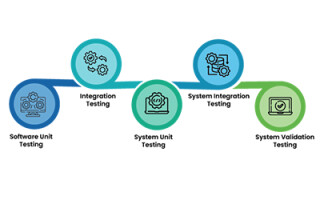Silicon Labs biosensors add ECG measurement for advanced heart rate monitoring in wearables
November 29, 2017

The Si117x sensor modules combine ultra-low power and high sensitivity, making them ideal for wrist-based, patch-type, and other wearables requiring long battery life and HRM accuracy.
Silicon Labs has introduced a family of optical biometric sensors providing advanced heart rate monitoring (HRM) along with electrocardiogram (ECG) capabilities for a wide range of wearable fitness and wellness products. The Si117x sensor modules combine ultra-low power and high sensitivity, making them ideal for smart watches and wrist-based, patch-type, and other wearables requiring long battery life and HRM accuracy. Silicon Labs also offers an end-to-end sensing solution featuring the Si117x sensor module, HRM algorithm, Wireless Gecko SoCs for Bluetooth connectivity, and a wrist-based development kit with sample code and example projects.
The Si117x sensors consume less than 50 µA (sensor and LED combined) while performing continuous HRM. A built-in buffer and accelerometer synchronization capabilities save even more system-level power, enabling developers to use smaller batteries in wearable designs without significantly impacting the device’s battery life during continuous monitoring.
The sensors offer fast sampling speeds, a high signal-to-noise ratio (SNR >100 dB), and the ability to cancel out ambient noise and erroneous data so users can track heart rates despite challenging physiologies, varying skin tones, and the presence of tattoos. By making measurements in the same device and at the same time, the Si117x sensors allow developers to combine biometrics with optical photoplethysmogram (PPG) measurements to derive physiological parameters such as heart rate variability, stress analysis, and pulse volume.
Each module supports up to four distinct LEDs (all of which can be driven simultaneously), and its four LED drivers are independently programmable (from 1.7 to 310 mA). Additional built-in features include a photodetector, 24-bit ADC with >100 dB dynamic range, I2C and SPI digital interfaces, programmable event interrupt engine, synchronization engine, host communications processor, and inputs for two external photodiodes.
The Si117x sensors support Silicon Labs’ proprietary, motion-compensated HRM algorithm optimized for wrist-based sensing and to run on EFM32 Gecko MCUs and EFR32 Wireless Gecko SoCs supporting Bluetooth Low Energy (LE). For additional information and to order sensor samples, visit www.silabs.com/hrm.





